
The career path of a doctoral student often starts at an early age as new high school graduates understand it’s going to take a long time (typically eight years or more) until they earn the piece of paper and designation that tells them they can begin a career in the field of their choice. However, once you begin working in the world of academics, you’ll run into Ph.D. holders of all ages.
Just because this is the “typical” route doesn’t mean it’s the only one, though. More and more individuals are moving beyond the bachelor's and master's degrees and heading for their doctorate in philosophy at later stages in life. Although it may seem counterintuitive to put all the effort, time, and money into a degree they won’t be able to use for the decades a younger graduate might, the fact is that there are no age limits or restrictions in most countries. If a person has had a goal to obtain their Ph.D., it’s a worthy and valid target that should not be stopped by any age limit cap. In fact, any university that attempts to do so could very well be subject to a lawsuit for ageism, or age discrimination. But before jumping straight into university life in an attempt to earn that Ph.D., there are some things that should be considered first for everyone, regardless of age.

Why Do Many Students Take the Ph.D. Path?
The education required to obtain a Ph.D. is not something a student considers lightly. It takes many years and, often, hundreds of thousands of dollars to get that designation behind your name. Students who start their degree straight out of high school or soon thereafter almost always say the same thing: they want to do something impactful with the rest of their lives. Graduate school gives them a direction to go in which they can challenge their intellect and integrate that with a cognitive and emotional career path that lets them make a difference in society.
Older students who return to school later in life have a different mix of reasons for their new interest in getting their PhD. Many of them want to further their careers after stagnating with their current degree. They’re ready to take a risk and invest in their education in order to move ahead in the future. Some have personal goals they have put on hold to have a family or for other reasons, but they have chosen that time as when they are ready to go back and reach their goals. Yet others are on a search for meaning in a certain area, or in life in general, and head back to school determined to learn more about human behavior, psychology, and other intellectual fields.
Things to Consider Before Choosing to Apply for a Doctoral Degree
There are no age restrictions on a doctoral degree. In fact, the youngest Ph.D. graduate on record currently is Kim Ung-Yong, a South Korean professor who earned his Ph.D. in civil engineering at the young age of 15! On the other extreme is Charles Betty, the United Kingdom graduate who, earning his Ph.D. at 95 years of age, is currently the oldest doctoral graduate in the world.
These extreme graduates are rare. The majority of students who take the Ph.D. path end up graduating around the age of 26 or 27 if they take the traditional path of high schools, undergraduate, and Master’s degrees.
At that point, anyone looking to continue their education and obtain a Ph.D. should consider certain aspects to ensure they are on the right path, such as:
● The quality of life they will have while they are attending graduate school. A Ph.D. program is all-encompassing and it’s hard to have a job and/or a personal life while you’re immersed in your education.
● The degree program that suits your career field. With that much time, effort, and money invested, the degree you choose should be something you want to do with the rest of your life.
● The cost of the program. Will what you’ll be doing pay you enough to live the style of life you want to have and cover your student loan payments?
● The time you’ll be spending on your coursework and dissertation. Are you prepared to put the effort into researching, experimenting, and writing that a Ph.D. requires?
While a Ph.D. is an honorable career and education goal, it’s not for everyone. No matter how old you are, consider these essential characteristics that go hand-in-hand with every Ph.D. path you might take, and be sure you’re ready for them before you start the process.
- Afghanistan
- Åland Islands
- American Samoa
- Antigua and Barbuda
- Bolivia (Plurinational State of)
- Bonaire, Sint Eustatius and Saba
- Bosnia and Herzegovina
- Bouvet Island
- British Indian Ocean Territory
- Brunei Darussalam
- Burkina Faso
- Cayman Islands
- Central African Republic
- Christmas Island
- Cocos (Keeling) Islands
- Congo (Democratic Republic of the)
- Cook Islands
- Côte d'Ivoire
- Curacao !Curaçao
- Dominican Republic
- El Salvador
- Equatorial Guinea
- Falkland Islands (Malvinas)
- Faroe Islands
- French Guiana
- French Polynesia
- French Southern Territories
- Guinea-Bissau
- Heard Island and McDonald Islands
- Iran (Islamic Republic of)
- Isle of Man
- Korea (Democratic Peoples Republic of)
- Korea (Republic of)
- Lao People's Democratic Republic
- Liechtenstein
- Marshall Islands
- Micronesia (Federated States of)
- Moldova (Republic of)
- Netherlands
- New Caledonia
- New Zealand
- Norfolk Island
- North Macedonia
- Northern Mariana Islands
- Palestine, State of
- Papua New Guinea
- Philippines
- Puerto Rico
- Russian Federation
- Saint Barthélemy
- Saint Helena, Ascension and Tristan da Cunha
- Saint Kitts and Nevis
- Saint Lucia
- Saint Martin (French part)
- Saint Pierre and Miquelon
- Saint Vincent and the Grenadines
- Sao Tome and Principe
- Saudi Arabia
- Sierra Leone
- Sint Maarten (Dutch part)
- Solomon Islands
- South Africa
- South Georgia and the South Sandwich Islands
- South Sudan
- Svalbard and Jan Mayen
- Switzerland
- Syrian Arab Republic
- Tanzania, United Republic of
- Timor-Leste
- Trinidad and Tobago
- Turkmenistan
- Turks and Caicos Islands
- United Arab Emirates
- United Kingdom of Great Britain and Northern Ireland
- United States of America
- United States Minor Outlying Islands
- Venezuela (Bolivarian Republic of)
- Virgin Islands (British)
- Virgin Islands (U.S.)
- Wallis and Futuna
- Western Sahara
How Long Does It Take to Get a Ph.D. Degree?
Earning a Ph.D. from a U.S. grad school typically requires nearly six years, federal statistics show.
How Long It Takes to Get a Ph.D. Degree

Caiaimage | Tom Merton | Getty Images
A Ph.D. is most appropriate for someone who is a "lifelong learner."
Students who have excelled within a specific academic discipline and who have a strong interest in that field may choose to pursue a Ph.D. degree. However, Ph.D. degree-holders urge prospective students to think carefully about whether they truly want or need a doctoral degree, since Ph.D. programs last for multiple years.
According to the Survey of Earned Doctorates, a census of recent research doctorate recipients who earned their degree from U.S. institutions, the median amount of time it took individuals who received their doctorates in 2017 to complete their program was 5.8 years. However, there are many types of programs that typically take longer than six years to complete, such as humanities and arts doctorates, where the median time for individuals to earn their degree was 7.1 years, according to the survey.
Some Ph.D. candidates begin doctoral programs after they have already obtained master's degrees, which means the time spent in grad school is a combination of the time spent pursuing a master's and the years invested in a doctorate. In order to receive a Ph.D. degree, a student must produce and successfully defend an original academic dissertation, which must be approved by a dissertation committtee. Writing and defending a dissertation is so difficult that many Ph.D. students drop out of their Ph.D. programs having done most of the work necessary for degree without completing the dissertation component. These Ph.D. program dropouts often use the phrase " all but dissertation " or the abbreviation "ABD" on their resumes.
According to a comprehensive study of Ph.D. completion rates published by The Council of Graduate Schools in 2008, only 56.6% of people who begin Ph.D. programs earn Ph.D. degrees.
Ian Curtis, a founding partner with H&C Education, an educational and admissions consulting firm, who is pursuing a Ph.D. degree in French at Yale University , says there are several steps involved in the process of obtaining a Ph.D. Students typically need to fulfill course requirements and pass comprehensive exams, Curtis warns. "Once these obligations have been completed, how long it takes you to write your dissertation depends on who you are, how you work, what field you're in and what other responsibilities you have in life," he wrote in an email. Though some Ph.D. students can write a dissertation in a single year, that is rare, and the dissertation writing process may last for several years, Curtis says.
Curtis adds that the level of support a Ph.D. student receives from an academic advisor or faculty mentor can be a key factor in determining the length of time it takes to complete a Ph.D. program. "Before you decide to enroll at a specific program, you’ll want to meet your future advisor," Curtis advises. "Also, reach out to his or her current and former students to get a sense of what he or she is like to work with."
Curtis also notes that if there is a gap between the amount of time it takes to complete a Ph.D. and the amount of time a student's funding lasts, this can slow down the Ph.D. completion process. "Keep in mind that if you run out of funding at some point during your doctorate, you will need to find paid work, and this will leave you even less time to focus on writing your dissertation," he says. "If one of the programs you’re looking at has a record of significantly longer – or shorter – times to competition, this is good information to take into consideration."
He adds that prospective Ph.D. students who already have master's degrees in the field they intend to focus their Ph.D. on should investigate whether the courses they took in their master's program would count toward the requirements of a Ph.D. program. "You’ll want to discuss your particular situation with your program to see whether this will be possible, and how many credits you are likely to receive as the result of your master’s work," he says.
How to Write M.D.-Ph.D. Application Essays
Ilana Kowarski May 15, 2018

Emmanuel C. Nwaodua, who has a Ph.D. degree in geology, says some Ph.D. programs require candidates to publish a paper in a first-rate, peer-reviewed academic journal. "This could extend your stay by a couple of years," he warns.
Pierre Huguet, the CEO and co-founder of H&C Education, says prospective Ph.D. students should be aware that a Ph.D. is designed to prepare a person for a career as a scholar. "Most of the jobs available to Ph.D. students upon graduation are academic in nature and directly related to their fields of study: professor, researcher, etc.," Huguet wrote in an email. "The truth is that more specialization can mean fewer job opportunities. Before starting a Ph.D., students should be sure that they want to pursue a career in academia, or in research. If not, they should make time during the Ph.D. to show recruiters that they’ve traveled beyond their labs and libraries to gain some professional hands-on experience."
Jack Appleman, a business writing instructor, published author and Ph.D. candidate focusing on organizational communication with the University at Albany—SUNY , says Ph.D. programs require a level of commitment and focus that goes beyond what is necessary for a typical corporate job. A program with flexible course requirements that allow a student to customize his or her curriculum based on academic interests and personal obligations is ideal, he says.
Joan Kee, a professor at the University of Michigan with the university's history of art department, says that the length of time required for a Ph.D. varies widely depending on what subject the Ph.D. focuses on. "Ph.D. program length is very discipline and even field-specific; for example, you can and are expected to finish a Ph.D, in economics in under five years, but that would be impossible in art history (or most of the humanities)," she wrote in an email.
Kee adds that humanities Ph.D. programs often require someone to learn a foreign language, and "fields like anthropology and art history require extensive field research." Kee says funding for a humanities Ph.D. program typically only lasts five years, even though it is uncommon for someone to obtain a Ph.D. degree in a humanities field within that time frame. "Because of this, many if not most Ph.D. students must work to make ends meet, thus further prolonging the time of completion," she says.
Jean Marie Carey, who earned her Ph.D. degree in art history and German from the University of Otago in New Zealand, encourages prospective Ph.D. students to check whether their potential Ph.D. program has published a timeline of how long it takes a Ph.D. student to complete their program. She says it is also prudent to speak with Ph.D. graduates of the school and ask about their experience.
Online Doctoral Programs: What to Expect
Ronald Wellman March 23, 2018

Kristin Redington Bennett, the founder of the Illumii educational consulting firm in North Carolina, encourages Ph.D. hopefuls to think carefully about whether they want to become a scholar. Bennett, who has a Ph.D. in curriculum and assessment and who previously worked as an assistant professor at Wake Forest University , says a Ph.D. is most appropriate for someone who is a "lifelong learner." She says someone contemplating a Ph.D. should ask themselves the following questions "Are you a very curious person... and are you persistent?"
Bennett urges prospective Ph.D. students to visit the campuses of their target graduate programs since a Ph.D. program takes so much time that it is important to find a school that feels comfortable. She adds that aspiring Ph.D. students who prefer a collaborative learning environment should be wary of graduate programs that have a cut-throat and competitive atmosphere, since such students may not thrive in that type of setting.
Alumni of Ph.D. programs note that the process of obtaining a Ph.D. is arduous, regardless of the type of Ph.D. program. "A Ph.D. is a long commitment of your time, energy and financial resources, so it'll be easier on you if you are passionate about research," says Grace Lee, who has a Ph.D. in neuroscience and is the founder and CEO of Mastery Insights, an education and career coaching company, and the host of the Career Revisionist podcast.
"A Ph.D. isn't about rehashing years of knowledge that is already out there, but rather it is about your ability to generate new knowledge. Your intellectual masterpiece (which is your dissertation) takes a lot of time, intellectual creativity and innovation to put together, so you have to be truly passionate about that," Lee says.
Curtis says a prospective Ph.D. student's enthusiasm for academic work, teaching and research are the key criteria they should use to decide whether to obtain a Ph.D. degree. "While the time it takes to complete a doctorate is an understandable concern for many, my personal belief is that time is not the most important factor to consider," he says. "Good Ph.D. programs provide their students with generous stipends, health care and sometimes even subsidized housing."
Erin Skelly, a graduate admissions counselor at the IvyWise admissions consulting firm, says when a Ph.D. students struggles to complete his or her Ph.D. degree, it may have more to do with the student's academic interests or personal circumstances than his or her program.
"The time to complete a Ph.D. can depend on a number of variables, but the specific discipline or school would only account for a year or two's difference," she wrote in an email. "When a student takes significantly longer to complete a Ph.D. (degree), it's usually related to the student's coursework and research – they need to take additional coursework to complete their comprehensive exams; they change the focus of their program or dissertation, requiring extra coursework or research; or their research doesn't yield the results they hoped for, and they need to generate a new theory and conduct more research."
Skelly warns that the average completion time of a Ph.D. program may be misleading in some cases, if the average is skewed based on one or two outliers. She suggests that instead of focusing on the duration of a particular Ph.D. program, prospective students should investigate the program's attritition and graduation rates.
"It is worthwhile to look at the program requirements and the school's proposed timeline for completion, and meet current students to get their input on how realistic these expectations for completion are," Skelly says. "That can give you an honest idea of how long it will really take to complete the program."
Searching for a grad school? Access our complete rankings of Best Graduate Schools.
Tags: graduate schools , education , students
You May Also Like
Get accepted to multiple top b-schools.
Anayat Durrani May 16, 2024

Premeds and Emerging Medical Research
Zach Grimmett May 14, 2024

How to Get a Perfect Score on the LSAT
Gabriel Kuris May 13, 2024

Premeds Take 5 Public Health Courses
Rachel Rizal May 7, 2024

Fortune 500 CEOs With a Law Degree
Cole Claybourn May 7, 2024

Why It's Hard to Get Into Med School
A.R. Cabral May 6, 2024

Pros, Cons of Unaccredited Law Schools
Gabriel Kuris May 6, 2024

An MBA and Management Consulting
Sammy Allen May 2, 2024

Med School Access for Minority Students
Cole Claybourn May 2, 2024

Different jobs with med degree
Jarek Rutz April 30, 2024

Online Doctorate Degree Guide
Brendan Gawlowski
Contributing Writer
Learn about our editorial process .
Updated April 18, 2024 · 5 Min Read

thebestschools.org is an advertising-supported site. Featured or trusted partner programs and all school search, finder, or match results are for schools that compensate us. This compensation does not influence our school rankings, resource guides, or other editorially-independent information published on this site.
Are you ready to discover your college program?
Earning a doctorate can lead to higher pay, new career opportunities, and more responsibilities. Online universities make it easier than ever to earn doctoral degrees through flexible enrollment options.
Is it worth it to earn a doctorate? What's the best specialization in a doctoral program? Can you earn a doctorate online? Our resources walk through the process of deciding whether to pursue a doctorate, along with how to choose a doctoral program and transition into the workforce afterward. We also help prospective students evaluate the career benefits of different degrees.
We rank healthcare, business management, computer science, social science, and education doctoral programs. Our resources also rank the best online universities . Prospective students can use these rankings to find the right fit for their circumstances and career goals.
Deciding to Pursue an Online Doctoral Degree
A doctoral degree offers many benefits. Graduates can advance their careers, increase their earning potential, and move into new fields after earning doctorates. Online formats may appeal to working professionals and students who need more flexible schedules.
Before applying to online doctoral programs, research how to choose a college to learn more about the top-ranked online universities . Our guides on using our rankings can help prospective applicants sort their options and identify the strongest program for their personal and professional aspirations.
Business Management and Administration Doctoral Degrees
Management occupations offer the highest median salaries of any occupational group. A doctorate in business management or administration strengthens problem-solving and analytical skills. Graduates typically pursue careers in business.
Within the field, graduate students can earn degrees in nonprofit management , project management , and business administration . A doctorate in management emphasizes leadership theory and management principles. Learners study organizational behavior, team leadership, and strategic management.
Specialized programs in organizational leadership and human resources can lead to focused career paths. For example, doctoral degree-holders can pursue work as human resources managers, CEOs, and nonprofit managers.
- Business Administration
- Human Resources
- Nonprofit Management
- Organizational Leadership
- Project Management
Computer Science and Information Technology Doctoral Degrees
Computer science and information technology degrees can lead to many opportunities for candidates with doctorates. A computer science degree can open pathways to careers as software engineers, computer scientists, and computer and information systems managers. During a doctorate in computer science, learners complete advanced courses in complex algorithms, machine learning, artificial intelligence, and computer architecture.
Tech degree-seekers can also earn doctorates in information technology . An IT doctorate includes coursework in information systems, computer networking, and systems analysis. The degree often includes graduate-level business training, preparing professionals for managerial roles in diverse organizations.
Criminal Justice and Legal Studies
A criminal justice or legal studies doctorate prepares professionals to pursue top positions in the criminal justice system. A doctorate in criminal justice can train learners in criminal justice policy, program evaluation, and research methods. Graduates can seek leadership positions in law enforcement and higher education.
A legal studies doctorate offers focused training in the law and legal analysis. Through coursework in legal ethics, legal theory, and legal policy, doctoral students strengthen their research and analytics skills. Like a criminal justice doctoral, legal studies programs require each enrollee to complete a dissertation. Graduates can find work in research, legal adjudication, and academia.
Education Doctoral Degrees
A doctorate in education trains educators for leadership and administrative positions. For example, a doctorate in educational administration emphasizes school leadership and may lead to opportunities to pursue work as principals or superintendents. With doctoral degrees in reading and literacy , educators can work as instructional coordinators and school administrators.
Similarly, professionals with doctorates in educational technology can manage technology for school districts.
In addition to these programs, graduate students can pursue doctorates in child development to move into research or academic roles. These doctoral programs offer advanced training in pedagogical techniques, evaluation and assessment, and administration. They also strengthen research skills.
- Child Development
- Curriculum and Instruction
- Early Childhood Education
- Educational Administration
- Educational Leadership
- Educational Technology
- Higher Education
- Reading and Literacy
Finance Doctoral Degrees
The fast-moving financial sector requires strong data analysis and research skills. During a doctorate in finance , graduate students can strengthen their research skills and analytical abilities. A finance doctoral program includes coursework in finance theory, economic analysis, and applied behavioral finance.
Doctoral candidates also complete original research to write and defend dissertations. After earning doctorates in finance, graduates can pursue work in leadership roles like financial manager, director of finance, and chief financial officer. The degree may also lead to academic positions like finance professor.
Medical, Dental, and Nursing Doctoral Degrees
A doctorate in healthcare trains graduates for leadership positions in the fastest-growing sector of the economy, with a projected 2.4 million new jobs from 2019-2029. Many healthcare careers for individuals with doctorates also offer above-average salaries. For example, a doctorate in nursing may open the door to advanced practice careers like nurse practitioner or nurse anesthetist.
With doctorates in public health , professionals can pursue employment as epidemiologists, public health directors, and public health researchers. A doctorate in healthcare administration emphasizes non-clinical leadership roles through coursework in healthcare finances and management. These doctoral programs help healthcare professionals increase their responsibilities and earning potential.
Public Administration and Public Policy Doctoral Degrees
A public administration or public policy doctorate prepares graduates for leadership positions in government and policymaking organizations. During a doctorate in public administration , graduate students explore public financing, public management principles, and nonprofit management. The degree can lead to employment as a city manager, nonprofit director, or public administration professor.
Graduate students can also earn doctorates in public policy . Public policy programs emphasize policy research and assessment. Doctoral candidates learn to evaluate and suggest new policies. They study quantitative analysis, public sector budgeting, and strategic management. As with public administration, the degree may present employment opportunities in the public sector, nonprofits, and academia.
Marketing Doctoral Degrees
Marketing doctoral programs can help marketing professionals advance their careers. The marketing field requires strong analytical and research skills. An online doctorate in marketing strengthens these abilities through coursework, research projects, and a doctoral dissertation. Doctoral candidates can elevate their quantitative research skills and carry out original research projects to earn their degrees.
After completing marketing doctoral degrees, graduates often pursue leadership roles in marketing firms, enterprise-level businesses, and other organizations. These professionals can advance into roles such as marketing director, vice president of marketing, or chief marketing officer. The degree also meets the requirements for careers as a marketing professor.
Psychology, Counseling, and Social Work Doctoral Degrees
Doctoral degrees in psychology, counseling, and social work train graduates to pursue top positions in these fields. For example, licensed psychologists typically need psychology degrees at the doctoral level. A social work doctorate prepares graduates for policymaking and leadership roles.
Students can specialize in general psychology , social work , human services , and educational psychology . Doctoral candidates may also select concentrations like family counseling , addiction recovery , and counselor education . Many online doctoral programs meet the requirements for professional licensure. Distance learners typically complete practicum requirements at local sites.
- Addiction and Recovery
- Behavioral Psychology
- Counselor Education
- Educational Psychology
- Family Counseling
- Human and Family Development
- Human Services
- Organizational Psychology
- Social Work
Theology and Religion Doctoral Degrees
Theology and religion degrees bring together philosophy, faith, and history. A doctorate in theology or religion prepares graduates for leadership roles in ministry and theological interpretation. Online universities offer doctoral programs in ministry to train pastors, religious counselors, and other faith leaders. Doctoral degree-holders can also become ministry professors.
Distance learners can also pursue doctorates in theology online. Learners examine theological scholarship and study religious history. Many theology programs focus on Biblical analysis and Christian theology, though some may emphasize comparative religious texts.
Doctoral Degrees for Career Paths in the Trades
In addition to academic programs, prospective students can pursue trade degrees . While trade schools do not offer doctoral degrees, many universities enroll doctoral students in trade-focused programs. These programs prepare graduates for many different skilled trade careers .
A degree in emergency management or public safety administration can prepare graduates for leadership roles in emergency management and homeland security organizations. They can also earn doctorates in conflict management . For business-focused individuals, supply chain logistics degrees can lead to management-level roles in distribution and transportation.
Pursuing an Online Doctoral Degree
Many learners prefer online delivery for their doctorates. Working professionals and busy adults may enjoy the flexibility and convenience of online learning formats. Before applying to programs, research the top online universities , what to look for in online programs , and the essential tools for distance learners .
First-time distance learners also may benefit from learning about synchronous and asynchronous classes . Remember to check our online education checklist to make sure you're ready for school. Applicants can identify programs that best fit their needs while also preparing for their doctoral classes.
Paying for Your Doctoral Degree
The costs of earning a doctorate can add up quickly. Most doctoral programs take at least 3-5 years, with enrollees typically paying higher tuition rates than undergraduates.
Many students worry about college finances and paying for an online degree . Fortunately, doctoral-level enrollees qualify for several scholarships and grants . They can also pursue fellowships and assistantships to cover costs. Some employers even offer tuition remission programs. Finally, doctoral candidates can take out student loans .
- TBS' College Finances Guide
- Find Scholarships for College
- Paying for Online College
- What To Know About Student Loans
Frequently Asked Questions About Pursuing a Doctoral Degree
Can you get a doctorate degree online.
Yes. Many universities offer online doctoral programs. Degree-seekers can study finance, marketing, psychology, education, and more in online doctoral programs.
Is It Hard To Get a Ph.D. Online?
Earning a Ph.D. online requires strong organizational and time management skills. Many distance learners work while pursuing doctoral degrees.
What Doctorate Degrees Can You Get Online?
Graduate students can earn doctoral degrees in business, psychology, education, healthcare, and technology online. Many universities offer online doctoral programs.
Popular with our students.
Highly informative resources to keep your education journey on track.
Take the next step toward your future with online learning.
Discover schools with the programs and courses you’re interested in, and start learning today.
Best Accredited Online Ph.D. Programs 2024

AccreditedSchoolsOnline.org is committed to delivering content that is objective and actionable. To that end, we have built a network of industry professionals across higher education to review our content and ensure we are providing the most helpful information to our readers.
Drawing on their firsthand industry expertise, our Integrity Network members serve as an additional step in our editing process, helping us confirm our content is accurate and up to date. These contributors:
- Suggest changes to inaccurate or misleading information.
- Provide specific, corrective feedback.
- Identify critical information that writers may have missed.
Integrity Network members typically work full time in their industry profession and review content for AccreditedSchoolsOnline.org as a side project. All Integrity Network members are paid members of the Red Ventures Education Integrity Network.
Explore our full list of Integrity Network members.
Take our quiz and we'll do the homework for you! Compare your school matches and apply to your top choice today.

A Ph.D., or doctor of philosophy, is the highest level of academic degree that you can attain. Consisting primarily of research, a Ph.D. prepares you for a career in academia or research in the field you study.
Students who choose to pursue a Ph.D. online will find it can be completed in less time. Online students also get the added benefit of being able to complete their work from the comfort of home. The overall cost may also be less compared to an in-person program.
We’ve compiled a list of the best accredited online Ph.D. programs to help you start your search.
Are Online Ph.D. Programs Worth It?
An online Ph.D. program is an ideal choice if you want to balance your career and family responsibilities along with your education.
While there are some preconceived notions that online programs aren’t legitimate, as long as the program you choose is accredited, the degree is the same as one earned in person.
While the annual tuition cost to earn a Ph.D. online averages $12,394 for a public institution and $26,621 for a private university, doctoral graduates enjoy a lower unemployment rate and higher weekly salary than those with less education, according to the Bureau of Labor Statistics (BLS)
Did You Know…
- According to the BLS , workers with a doctoral degree earned a median of $651 more per week than workers with a bachelor’s degree in 2022.
- Doctorate-holders boast some of the lowest unemployment rates at 1%.
- In 2019, research found that 39.8% of graduate students were enrolled in online learning.
- The number of doctorates awarded between 2020 and 2021 dropped by 5.4%.
- Not all Ph.D.-holders end up working in academia.
Top Schools for Online Accredited Ph.D. Programs
Capitol technology university.
- Campus + Online
- In-State $25,830
- Out-of-state $25,830
- Retention Rate 75%
- Acceptance Rate 47%
- Students Enrolled 796
- Institution Type Private
- Percent Online Enrollment 98%
- Accreditation Yes
Clemson University
- In-State $14,118
- Out-of-state $37,110
- Retention Rate 94%
- Acceptance Rate 49%
- Students Enrolled 27,341
- Institution Type Public
- Percent Online Enrollment 49%
Keiser University
- In-State $20,800
- Out-of-state $20,800
- Retention Rate 72%
- Acceptance Rate 96%
- Students Enrolled 19,861
- Percent Online Enrollment 50%
Mississippi State University
- In-State $9,110
- Out-of-state $24,790
- Retention Rate 81%
- Acceptance Rate 76%
- Students Enrolled 23,086
- Percent Online Enrollment 43%
Nova Southeastern University
- In-State $33,510
- Out-of-state $33,510
- Retention Rate 78%
- Acceptance Rate 93%
- Students Enrolled 20,898
- Percent Online Enrollment 52%
Old Dominion University
- In-State $7,029
- Out-of-state $26,664
- Students Enrolled 23,494
- Percent Online Enrollment 76%
Saybrook University
- In-State $0
- Out-of-state $0
- Retention Rate 0%
- Acceptance Rate 0%
- Students Enrolled 915
- Percent Online Enrollment 100%
Texas Tech University
- In-State $8,935
- Out-of-state $21,204
- Retention Rate 85%
- Acceptance Rate 68%
- Students Enrolled 40,542
- Percent Online Enrollment 68%
How We Rank Schools
Accredited Schools Online uses a custom ranking system to evaluate schools on their quality, affordability, and reputation.
We rank schools using factors like graduation rate, admission rate, tuition costs, financial aid, and program offerings. All our ranked schools hold institutional accreditation .
For this page, we created a directory of online accredited Ph.D. programs that meet our criteria. The list is organized alphabetically rather than ranked.
Learn more about how we create school rankings on our methodology page .
Does Accreditation Matter for Online Ph.D. Programs?
A college is accredited after being recognized by an independent institution that verifies the school’s courses and programs meet set quality standards.
The school you choose must be accredited in order for your Ph.D. to be recognized by employers , earn professional licensures, and qualify you for federal financial aid.
Legitimate accreditors are recognized by the U.S. Department of Education and/or the Council for Higher Education Accreditation (CHEA).
How Much Does an Online Ph.D. Cost?
In general, you can expect to pay around $13,000-$30,000 per year in tuition and fees for your online Ph.D.
Several factors affect how much your Ph.D. program will cost, including:
- Whether the program is fully funded
- Whether your school is public or private
- Whether you’re an in-state or out-of-state student
- How long your program lasts (most Ph.D. programs take 5-7 years to complete)
- How much financial aid you get
While many in-person and online doctoral programs in the U.S. are fully funded, these tend to be highly competitive.
One way to save money on your online Ph.D. is to attend a program that offers in-state tuition to residents. Make sure you submit the FAFSA each year so you can secure federal financial aid .
You may also need to budget for occasional travel to and from campus and research sites, especially as you work on your dissertation.
What’s the Difference Between a Ph.D. and a Doctorate?
While a Ph.D. and a doctoral degree, or doctorate, both signify the same level of education completed, their uses are different.
Doctorate is the broader term — a Ph.D. is a type of doctorate. Specifically, a Ph.D. is an academic degree that prepares you for a career in research or teaching in your field of study (such as science, English, or economics).
Besides a Ph.D., other types of doctorates include a doctor of medicine (MD), a doctor of education (Ed.D.), and a doctor of psychology (Psy.D.). These degrees are typically used in either an academic or professional setting.
Online Ph.D. Programs That Don’t Require a Dissertation
A dissertation is a final written project culminating in a student’s original research at the end of their Ph.D. program. A dissertation is typically presented and defended by its author. It’s typically required for degrees with an academic or research focus.
Not all Ph.D. programs require a dissertation. For example, some Ph.D. programs in humanities, education, business administration, and criminal justice require simple or no dissertations for a quicker completion time .
What Jobs Can You Get After Earning an Online Ph.D.?
Once you finish your online doctoral program, you can explore a variety of career paths both within and outside academia.
Many Ph.D. graduates, especially those who studied the humanities, go on to become professors. Other popular roles include administrator, scientist, and psychologist.
Graduates of online Ph.D. programs earn a relatively high average base salary of $105,000 a year, according to Payscale .
Frequently Asked Questions About Online Ph.D. Programs
What is the quickest ph.d. to get.
The quickest Ph.D. to earn are those that award professional degrees and don’t require extensive research projects or dissertations at completion. These Ph.D. programs can include accounting, business, education, and media.
To finish your degree faster, you can also look for accelerated programs that quicken the pace of a program and shorten the time it takes to complete.
Are online doctoral programs legit?
If the online doctoral program is accredited, it is legitimate. Accreditation ensures that the program meets the rigorous educational standards of other comparative doctoral programs.
With accreditation, employers and other institutions of higher learning will recognize your degree. As more universities turn toward online programs to serve a more diverse student population, there are a growing number of legitimate, accredited online Ph.D. programs.
How long are online Ph.D. programs?
Online Ph.D. programs, like any other doctoral program, can vary in length but typically take 5-7 years to complete. A doctoral degree balances coursework with research. Usually, students must meet a certain number of course requirements before they can start original research.
While coursework may take only a year or two, writing a dissertation that meets the program requirements varies from candidate to candidate.
Can I earn my Ph.D. entirely online?
Yes, many accredited colleges and universities offer 100% online Ph.D. programs. That said, some programs may require on-campus experiences, such as library research and a dissertation defense.
What do employers think of online doctoral programs?
It takes a high level of discipline and persistence to obtain a graduate degree, no matter the context. Most employers will recognize and value the hard work it takes to get a Ph.D., whether you completed your doctorate online or in person.
Make sure you research potential programs. If you’re attending an accredited, well-regarded school, employers will value your online Ph.D. just as much as a traditional one.
Note: The insights on this page — excluding school descriptions — were reviewed by an independent third party compensated for their time by Accredited Schools Online. Page last reviewed November 20, 2023.

Online Ph.D. programs provide students with flexible schedules and affordable tuition. Check out the top-ranked programs in this comprehensive guide.

Best Accredited Online Master’s Programs 2024

Best Accredited Online Bachelor’s Degree Programs 2024
Shape your future with an online degree.
Connect with a community of peers, and find a program that will allow you to continue your education in a fast and flexible way.

Can You Get a PhD without a Masters?
- Applying to a PhD
Yes, it’s possible to get a PhD without first having a Masters degree.
The conventional route for someone who earns a PhD is to pursue a Bachelor’s degree, followed by a Masters degree and then a PhD. However, several students opt to bypass a Master’s degree by enrolling onto a doctoral programme as soon as they complete their undergraduate degree.
Before we discuss how this can be done, it is worth mentioning the advantages and disadvantages of this route.
Advantages of Applying to a PhD without A Masters
The motivations for undertaking a PhD immediately after an undergraduate course are largely in saving money and time. This is because you will essentially eliminate a year of study. Another advantage of immediately enrolling onto a doctorate degree is project availability. If you find a project that you’re really interested in, it’s unlikely that it will still be available in a years’ time. Therefore, bypassing a Masters and enrolling directly into a PhD will increase your chances of securing the research project before it becomes unavailable.
Disadvantages of Applying to a PhD without A Masters
Although a Masters degree will add a year onto your academic journey, it can be incredibility helpful for your development and can help prepare you for a doctoral degree.
Not having a Master’s degree may prove to be a hindrance during your application process. This is because many other students will also apply to the same research projects, and it’s likely that the majority will hold a Masters. This will put you at a disadvantage to them.
Besides this, the dissertation project you’ll be required to undertake on a Master’s programme will provide you with a taste of what it is like to work on a research-based project. In addition to this, it’s likely that you’ll be able to select your own dissertation topic. As such, you can explore a specific field you’re interested in in further detail. This is a great way to confirm that both research-based work and the specific field you’re interested in are right for you before committing the next few years to it via a PhD.
Another advantage to the dissertation project associated with a Masters degree is the opportunity it provides you with to work closely with a project supervisor. This will help you understand the PhD student-supervisor relationship and communication frequency that works best for you. You can then use this knowledge to find supervisors who would compliment you when it comes time to find a PhD project to apply to. For tips on how to find a great PhD supervisor, check out our supervisor guide .
PhD without a Masters – How Does It Work?
To be considered for a PhD without a Master’s, at a minimum you will be expected to have a Bachelors degree. For students looking to enrol onto a STEM (Science, Technology, Engineering and Maths) PhD, a relevant Bachelors in a 3-year undergraduate course is usually expected. However, this is not the case for students looking to apply to non-STEM PhDs. Rather, students looking to apply to doctorates in subjects such as those surrounding Arts and Humanities are usually expected to have a relevant Bachelors from a 4-year course.
In addition to this, you will need to have demonstrated strong academic performance during your undergraduate course. This means that your Bachelors will need to be at least a UK Upper Second-Class Honours (2.1) for nearly all institutions to consider you.
Should you be accepted into a PhD programme without a Masters, the usual process will be to first register you as an MPhil student. You will then have a year to prepare and submit a thesis. Your thesis will need to detail the research you have carried out within that year and outline how you intend to continue it into a full PhD study. There are three outcomes of this MPhil thesis review:
- Failure and you’re not awarded anything.
- You pass, however, the supervisor doesn’t believe you’ve demonstrated strong research skills. You’re awarded an MPhil but they do not upgrade your course to a PhD programme.
- You pass and the supervisor believes you have proven yourself as a capable researcher. Your course is upgraded to a PhD as opposed to you being awarding an MPhil.
For more information on these outcomes, read the outcomes section of our PhD Viva guide .
Integrated PhD
Some universities offer Integrated PhD degree programmes (also known as an Integrated Masters degree). These are four-year programmes comprising of a one-year Masters degree immediately followed by a three-year PhD degree. These can prove a great option for graduate students who are looking to undertake a PhD without a Masters but are struggling to meet the eligibility requirements. You can read about the many benefits of integrated degrees here .
Finding a PhD has never been this easy – search for a PhD by keyword, location or academic area of interest.
PhD without a Bachelors – Is It Possible?
Yes, it is possible to get a PhD without a Bachelor’s, however, this is extremely uncommon.
When this occurs, it is almost always reserved for very mature individuals. For example, an individual may not be in active academia but still may have significantly contributed to their field. This contribution could be through the work they have undertaken as part of their career, or as part of a long-term study project, they have undertaken out of self-interest.
In either case, the individual would need to prove that they have extensive experience in their field and have directly contributed to new knowledge within it. The key factor here is that their work has pushed the boundaries of existing knowledge. It is not enough for an individual to be regarded as an expert in their field – they must have contributed something new and meaningful. It’s common for individuals awarded a PhD through this means to have produced several publications within their lifetime. It’s also common for the individual to have gained several professional accreditations within their field before even being considered suitable for a PhD research degree.
Universities Offering PhD without a Masters
Unfortunately, there is not a centralised list of universities which offer PhDs without a Master’s degree. The reason for this is that the edibility requirements differ from PhD to PhD and from department to department.
Therefore, you will need to check the guidelines for each individual university and the requirements for each specific PhD you’re interested in.
Should you find a PhD programme you can apply to with a Bachelors, make every effort to make your application as strong as possible. This is because you will be competing against other candidates, most of who will have a Master’s degree.
Not only can you strengthen your application by having a Bachelors with a First-Class Honours (1st), but you can also do so by showing the traits of a successful researcher. This includes showing a genuine interest in the project, a high work ethic, and exceptional communication skills.
Additionally, a strong letter of recommendation from a respected university lecturer will prove very beneficial. This is especially true if the lecturer supervisors his or her own PhD students. This is because the lecturer will understand the skills required for an adept research student.
For more advice on how to apply to a PhD degree, check out our Application Process Guide.
Browse PhDs Now
Join thousands of students.
Join thousands of other students and stay up to date with the latest PhD programmes, funding opportunities and advice.
- Top Courses
- Online Degrees
- Find your New Career
- Join for Free
Take your career to the next level with an online degree
Find the right degree for you.

University of Colorado Boulder
Master of Science in Computer Science

University of Michigan
Master of Applied Data Science

University of Huddersfield
MSc Management
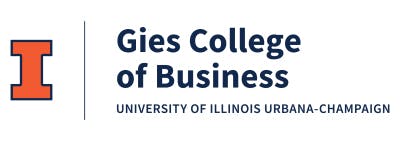
University of Illinois at Urbana-Champaign
Master of Business Administration (iMBA)
Master of science in data science.

University of Oklahoma
Master of Supply Chain Management

University of Utah
Master of Science in Electrical and Computer Engineering

University of London
Bachelor of Science in Computer Science
Browse by program level, bachelor's degrees, master's degrees, postgraduate programs, browse by category.
Business and MBA Degrees
Computer Science Degrees
Data Science Degrees
Public Health Degrees
Data Analytics Degrees
Top European Degrees
Maestrías en línea de Latinoamérica
Top Indian Degrees
Affordable tuition with flexible payment options
Pursue your degree with affordable tuition, flexible payment options that let you pay as you go, and financial aid opportunities, including scholarships.
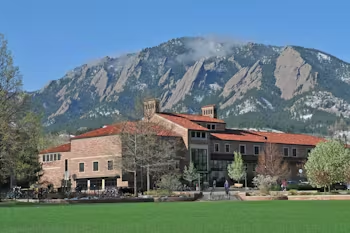
Master of Science in Management (iMSM)

Master of Science in Cyber Security
24 – 60 months
Designed for working adults
Enroll in flexible, 100% online degree programs. Set your own schedule to balance your work and personal commitments and complete coursework at your own pace.
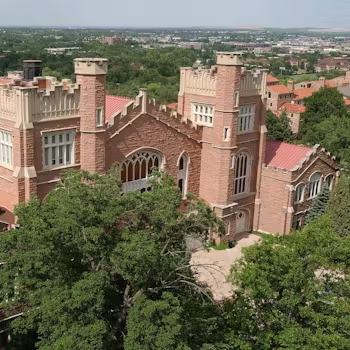
12 – 36 months

Quality learning from world-class universities
Unlock your potential and pave the way to a successful career by earning a degree from an accredited university. Learn from expert faculty passionate about helping you achieve your goals.

Start making progress toward a degree today
Discover flexible degree pathways that enable you to build new skills and gain career certificates while making progress and earning credit toward eligible degree programs.
Each university determines the number of pre-approved credits that may count towards the degree requirements according to institutional policies.
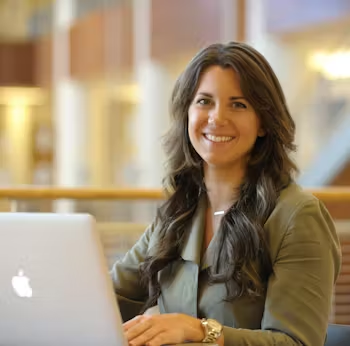
24 – 36 months

36 – 72 months
Gain admission without an application
Complete university-approved content to qualify for performance-based admission to select degree programs and earn credit toward your degree. No application or prior work experience is required to start these degree pathways.
Each university determines the grades required to qualify for performance-based admission. Review the admissions process for each degree program for more information.

Illinois Tech
Master of Business Administration
12 – 24 months


Master of Engineering in Engineering Management
Hear why students enjoy learning on coursera, learn from expert faculty.
Jessica Leeker
Professor in Engineering Practice
Master of Public Health
Sharon L.R. Kardia, PhD
Millicent W. Higgins Collegiate Professor of Epidemiology, Associate Dean for Education
University of Illinois
Associate Dean of Professional Education Pathways and Professor of Accountancy and Arthur Andersen Faculty Fellow
MSc in Innovation and Entrepreneurship
Laurence Lehmann-Ortega
Affiliate Professor of Management
Universidad de los Andes
Maestría en Ingeniería de Software
Rubby Casallas, PhD
Profesora titular
Chris Mitchell
Professor of Computer Science
Gain helpful insight on degree-related topics
A guide to online bachelor's degrees.
Online bachelor degrees have become increasingly popular, especially for students in need of greater flexibility. Learn more about this degree option, and the many benefits it has to offer.
Last updated on November 29, 2023
A Guide to Online Master's Degrees
A growing number of students are opting to earn their master’s degree online. Learn more about online master's degrees and their particular benefits.
Should You Go Back to School? 7 Things to Consider
Going back to school has the potential to boost your career possibilities and your income. Here are some questions to ask yourself as you figure out what's best for you.
Last updated on December 1, 2023
10 Surprising Benefits of Online Learning in 2024
Interested in pursuing an online educational program? Find out about the specific benefits that come with pursuing an online education.
Last updated on January 2, 2024
Frequently asked questions
Are the degrees hosted on coursera from accredited universities.
Yes, all online degree programs available on Coursera are directly conferred by accredited institutions. Accreditation is important because it shows that an institution meets rigorous academic standards, eases your ability to transfer credits, and helps employers validate the quality of education on your resume or application.
Can I transfer previously earned college credits?
That depends on the degree you’re interested in earning. Many of the bachelor’s degrees on Coursera from US-based institutions, such as Georgetown University’s Bachelor of Arts in Liberal Studies , allow students to transfer some previously earned college credit s. Some, like the University of North Texas’ Bachelor of Applied Arts and Sciences and Bachelor of Science in General Business , are degree completion programs and require transfer credits in order to enroll.
Each university determines the number of pre-approved transfer credits that may count towards the degree requirements according to institutional policies. Check with each degree program for more information.
You can also build credit toward an online degree program by first enrolling in university pre-approved courses, specializations, and certificates on Coursera. If you decide to apply and are admitted, the courses you’ve completed may count toward your degree requirements.
Can I take online degree courses from anywhere in the world?
Yes, all you need is a reliable internet connection. No matter where you are in the world, you can enroll in the degree programs that Coursera’s university partners offer, though there may be specific application requirements based on your status as a domestic or international student.
How long do degrees take to finish?
Many degree programs with Coursera’s university partners are designed to be pursued part-time or full-time, depending on your availability.
Undergraduate degrees take between two and six years, depending on the amount of college credit you’re able to transfer (if applicable) and the length of each degree program. For instance, BITS Pilani recommends dedicating 25 hours per week to your courses, while the University of London recommends 28 hours per week.
Graduate degrees can take between one and three years.
What are the application deadlines?
College application deadlines , for both bachelor’s degrees and master’s degrees , tend to occur just once a year. However, on Coursera, you’ll find greater flexibility from universities. Deadlines tend to occur around three times a year—once in the fall, once in the spring, and once in the summer—depending on the institution.
Some degree programs, like the University of Colorado Boulder's Master of Science in Data Science , don't require an application for admission. Instead, you can qualify for performance-based admission by passing three online courses pre-approved by the university with an 80% grade or higher.
What is the online degree experience like on Coursera?
Earning your degree from a leading university on Coursera means experiencing greater flexibility than in-person degree programs, so you can earn the best degree for your needs without having to relocate or choose between your other responsibilities. You can take your online courses from anywhere in the world, at a pace that works for you.
Once enrolled in your program, you may find a range of learning options, including live video lectures that encourage you to collaborate and self-paced courses that give you greater independence. Moreover, throughout your learning journey, you'll have access to a dedicated support team, course facilitators, and a network of peers to help you achieve your academic goals. Learn more about the benefits of learning online .
Does Coursera offer scholarships or tuition assistance? Where can I find information about them?
You cannot apply for a scholarship or tuition assistance directly from Coursera. However, many university partners offer an opportunity to apply for financial support directly. Check with each degree program for more information.
You can find information on external scholarships and other resources to help fund your degree on Coursera’s Financial Resources Hub .
Is an online degree worth it?
Education is a valuable tool you can use to achieve some goals: pivot to a new field, progress in your career, or learn about a subject in more depth. Online degree programs on Coursera come from accredited university partners and typically offer the same curriculum as their in-person degree programs.
Deciding whether an online degree is worth it is ultimately up to you. Consider your overall goals, whether the subject matter in a degree program aligns with your needs, the types of skills you’d like to develop, and how you learn best. These are just some of the factors worth reflecting on as you set about reviewing different degree programs on Coursera. Learn more about whether a bachelor’s degree is worth it and whether a master’s degree is worth it .
More Questions
Want to Get your Dissertation Accepted?
Discover how we've helped doctoral students complete their dissertations and advance their academic careers!
Join 200+ Graduated Students

Get Your Dissertation Accepted On Your Next Submission
Get customized coaching for:.
- Crafting your proposal,
- Collecting and analyzing your data, or
- Preparing your defense.
Trapped in dissertation revisions?
Double doctorate: can you get multiple phds, published by steve tippins on may 12, 2020 may 12, 2020.
Last Updated on: 2nd February 2024, 02:48 am
A question I’ve gotten a few times: “Can I get a double PhD?”
The answer is yes, you can under most circumstances. But why?
While there are some exceptional cases, generally I’d discourage people from pursuing a second PhD. Here are some of the reasons why. After I cover those, I’ll talk about situations where it makes sense to get multiple PhDs.
Reasons Not to Get a Double PhD
For the most part, I can’t see a big reason for a second PhD unless there is a second academic track you want to go into. Here are some reasons why getting a double PhD won’t actually double your opportunities.
You Are Already Considered an Expert
Once you have a PhD , few people outside of academia will ask you what it’s in. Outside the academic world, multiple PhDs will rarely give you much extra credibility.
Becoming a Student Again Is Tough

Getting a PhD means you’re very subservient to professors and committee members. Once you’ve emerged from that already and have become an expert, it’s very difficult to get back into that mindset. Doing so requires a lot of self-discipline and humility–sometimes even when it’s unwarranted. While possible, I wouldn’t say it’s desirable.
You Can Do Interdisciplinary Research Already
You probably wouldn’t need a PhD in both Anthropology and Psychology or in both Sociology and Psychology. Those fields are closely related, so an anthropologist can offer valuable insights to the field of psychology, and vice versa. Just make sure to stay within the scope of your knowledge or collaborate with researchers in the other field you’re exploring.
Over 50% of doctoral candidates don’t finish their dissertations.
You Already Have Research Skills
A PhD gives you the research skills, and those can transfer to other areas. If you have all those skills, you can get a lot of the information on your own and become an expert in another field. You know how to research and dive in and find people who can help you find other information, so if you need to know about a subject, you have the resources to do it on your own. You already have research skills. Why pay to learn them again?
A note of caution here: people have been getting in trouble for using “PhD” after their name and commenting on things that they’re not experts on. For example, someone with a PhD in classical literature commenting on current societal issues or health issues and not disclosing that their PhD is in an unrelated field.
If you want to be seen as an expert in a field, you’ll need to have a PhD (or other degree or certification) in that field.
Objectively speaking, the PhD research skills apply across the board. And it may be that through self-study or mentorship, you are an expert in a field unrelated to your degree. However, if you’re putting yourself out there as an expert in another field, you can still say you’re an expert, just don’t put “PhD” after your name (or be clear about what your PhD is in).
You May Be Seen as a “Permanent Student”

If you haven’t had much of a career after your first PhD, you may be seen as a permanent student. As David Clark pointed out on Stack Exchange , “Hovering around getting multiple PhDs would be akin to getting multiple bachelor degrees. People may see you as a permanent student, not someone growing into a mature researcher.”
While there are many advantages to being a permanent student–a life of learning and curiosity being one of them–some hiring managers may consider it a drawback, as they’re looking for someone invested in their career.
Reasons to Get a Double PhD
All that said, there are some situations where getting multiple PhDs may be the best choice. I’ve outlined some of these below.
Expertise in Hard Sciences

The most common instances of people having multiple PhDs are in the hard sciences. For example, medical students may also pursue a PhD in something like chemistry or physiology.
I’ve seen MDs with PhDs and JDs with PhDs. This can come in handy for those more interested in research or administrative work–for example, an MD who pursues a PhD in order to become eligible for an administrative-level position or pursue research.

Shifting Expertise
If you’re a biologist and would like to become a counselor or a mathematician, you’ll need a new degree. However, a PhD may not always be the best choice. Counselors, for example, can be certified with a Master’s degree (more on that in the next section).
That said, if you’re committed to research or high-level management positions in an entirely new field, it may be that there’s nothing to do but buckle down and get your second PhD.
Certifications with Similar Requirements

If you’re looking to get a certification, and the requirements for that certification are almost as much work as getting a PhD, it usually makes sense to go ahead and get the PhD.
For example, if you are an LMFT and want to get an AAMFT-Approved Supervisor designation, it’s usually worth just going ahead and getting the PhD, since the requirements for both are similarly stringent.
Another reason to go this route: you can get student loans to fund a PhD, but not to fund self-study.
How to Get a Double PhD
See if it’s necessary.
See if getting a Master’s or certification in that field will allow you to do what you want to do. For example, somebody who has a PhD in History who decides they want to be a financial planner. They could get a certified financial planner designation and then be fine. If they want to be a therapist, they just need a master’s degree in therapy.
See if You Can Get Credit from your Previous Program’s Courses

If you’re going into another field where you want to do research, you may get credit for the research courses you took in your previous program. However, there is usually a 5-10 year limit on this.
Pursue Two PhDs Simultaneously
In some cases, it is possible to complete similar coursework for multiple PhDs at the same time.
Christopher Wells pursued two related PhDs simultaneously. He says, “I have a double major doctoral degree that can be seen as two PhDs individually, in inorganic and physical chemistry, and pursued both of the majors at the same time during my nine years at SUNY Albany, from 2002 to 2011. However, my diploma only shows ‘Chemistry’, so I usually tell people directly about the two majors.”
Double PhD Summary
While in most situations getting multiple PhDs is unnecessary, there are some cases where it makes sense. If you’re in one of those situations, look into whether you can get credit for work you’ve already done.
Steve Tippins
Steve Tippins, PhD, has thrived in academia for over thirty years. He continues to love teaching in addition to coaching recent PhD graduates as well as students writing their dissertations. Learn more about his dissertation coaching and career coaching services. Book a Free Consultation with Steve Tippins
Related Posts

Academic Career
Bipoc academics matter: diversity in academia is long overdue.
We at Beyond PhD Coaching firmly believe that diversifying academia is both necessary and important – and well past overdue. There’s no denying that higher education equals more power in society. This power has been Read more…

Academic Arrogance: Dismantling a Culture of Harm
Academics are like polar bears. We live alone; we hibernate. If you walk down the halls of academic offices, you’ll find that almost all of the doors are shut. We live a solitary existence, occasionally Read more…

How to Be a Good PhD Student
If you’re curious about how to be a good PhD student, this article is a good place to start. As a professor for over 30 years, much of that as a Dissertation Committee Chair, I’ve Read more…
Make This Your Last Round of Dissertation Revision.
Learn How to Get Your Dissertation Accepted .
Discover the 5-Step Process in this Free Webinar .
Almost there!
Please verify your email address by clicking the link in the email message we just sent to your address.
If you don't see the message within the next five minutes, be sure to check your spam folder :).
- List of Colleges
Online Programs
- Advantages & Challenges
Choosing a Program
- Financial Aid
Best 18-Month Doctorate without Dissertation [2024 Guide]
An 18-month doctorate without dissertation is a strategic option for those looking to advance their education quickly and efficiently.

This guide explores a variety of professional doctorates, covering diverse fields from business administration to social work. You can gain insights into the subjects each degree covers as well as the potential career paths they can lead to.
Editorial Listing ShortCode:
Whether you’re looking to climb the career ladder or pivot to a new field, read on to discover a range of accelerated doctorate programs that don’t have a dissertation component.
List of Colleges Offering No Dissertation Doctorates
Methodology: The following school list is in alphabetical order. To be included, a college or university must be regionally accredited and offer degree programs online or in a hybrid format.
Boston University
Boston University’s 18 month post-professional OTD program is tailored for occupational therapy graduates and focuses on innovative practice and research. It requires the completion of 33 to 37 credits, depending on prior coursework. Classes are online and 7 weeks long, allowing flexibility with three annual start dates. Students work on their doctoral projects each semester instead of completing a final dissertation.
Boston University is accredited by the New England Commission of Higher Education.
Chatham University
Chatham University offers a 16 month online OTD program designed for occupational therapists aspiring to leadership roles. It requires the completion of 30 credits over 4 terms and allows students to progress by taking two classes at a time. Some courses in the curriculum are 7 weeks long, while others are 14 weeks long. The program is 100% online, providing flexibility for professionals to balance their studies with other commitments.
Chatham University is accredited by the Middle States Commission on Higher Education.
Frontier Nursing University
Frontier Nursing University’s Doctor of Nursing Practice (DNP) program is intended for registered nurses seeking advanced clinical, leadership, and organizational roles. It’s an 18 month, online program that requires the completion of 30 credit hours.
Students undertake a Quality Improvement project instead of a dissertation, focusing on enhancing healthcare delivery and outcomes through practical, evidence-based initiatives.
FNU is accredited by the Southern Association of Colleges and Schools Commission on Colleges.
Quinnipiac University
Quinnipiac University’s post-professional OTD program is tailored for practicing registered occupational therapists. It has minimal campus requirements and may be completed in 5 semesters.
Courses are offered in varying durations (5, 7, and 14 weeks long) and designed for working professionals. The program seeks to help students become leaders and evidence-based scholars without a dissertation requirement.
Quinnipiac University is accredited by the New England Commission of Higher Education.
Utica University
Utica University’s Doctor of Physical Therapy program combines online and on-campus learning and may be completed in 3 years. It’s crafted to enhance evidence-based practice, clinical, and research skills, aiming to equip aspiring physical therapists for the licensure exam. The curriculum encourages the development of diagnostic and critical thinking skills through a mix of instructional methods and practical case studies.
Utica University is accredited by the Middle States Commission on Higher Education.
Valparaiso University
Valparaiso University’s online post-professional Doctor of Occupational Therapy (DROT) is a 30 credit, fully online program. It is designed to be completed over 4 semesters and a capstone, potentially in just 18 months. It aims to prepare graduates for advanced roles in mentorship, education, evidence-based practice, and policy-making. The curriculum focuses on innovation without requiring a dissertation.
Valparaiso University is accredited by the Higher Learning Commission.
According to the U.S. Census Bureau , there’s a growing trend in higher education, with more people earning advanced degrees. Online doctorate programs that don’t require a traditional dissertation can often be completed in less time, some in as little as 18 months.
The following degree options showcase the wide range of fields that offer accelerated doctoral programs. Select the program that most interests you to jump to that section of the guide:
- Doctorate in Accounting
- Doctorate in Business Administration
- Doctorate in Computers & Information Technology
- Doctorate in Criminal Justice
- Doctorate in Education
- Doctorate in Engineering
- Doctorate in Entrepreneurship
- Doctorate in Finance
- Doctorate in Healthcare Administration
- Doctorate in Information Technology
- Doctorate in Liberal Arts
- Doctorate in Marketing
- Doctorate in Ministry
- Doctorate in Nursing
- Doctorate in Occupational Therapy
- Doctorate in Physical Therapy
- Doctorate in Public Administration
- Doctorate in Public Health
- Doctorate in Psychology
- Doctorate in Social Work
The program that’s best for you will depend on your personal interests and professional goals.
DBA in Accounting

An online DBA in Accounting helps you develop advanced accounting expertise and qualifications. This doctorate emphasizes applying accounting principles and strategies directly to professional settings, equipping you with skills to lead in dynamic business environments.
Key subjects studied include advanced financial reporting, strategic taxation, and auditing practices. With a focus on real-world financial challenges and strategic decision-making, an online DBA with no dissertation program can help prepare you for high-level finance roles, such as chief financial officer or financial strategist.
Doctor of Business Administration (DBA)

An accelerated Doctor of Business Administration program with no dissertation offers a swift path to advanced business leadership expertise.
Key subjects studied include global business strategies, organizational leadership, and business analytics. This program is beneficial for those aspiring to senior management roles or consultancy, as it focuses on broad-based business acumen applicable across various industries.
A DBA can help you develop practical skills for effective leadership and strategic planning in the ever-evolving global business landscape.
Computer Science

An 18-month non-dissertation doctorate in computer science program is a rapid route to advanced technological expertise.
This program is aimed at professionals who are eyeing leadership roles in tech industries. It emphasizes cutting-edge computing technologies and problem-solving in real-world contexts. Key subjects studied include advanced algorithms, data analytics and big data, and cybersecurity.
You can learn to apply advanced computer science principles in areas like software development, data security, and AI.
Doctor of Criminal Justice (DCJ)
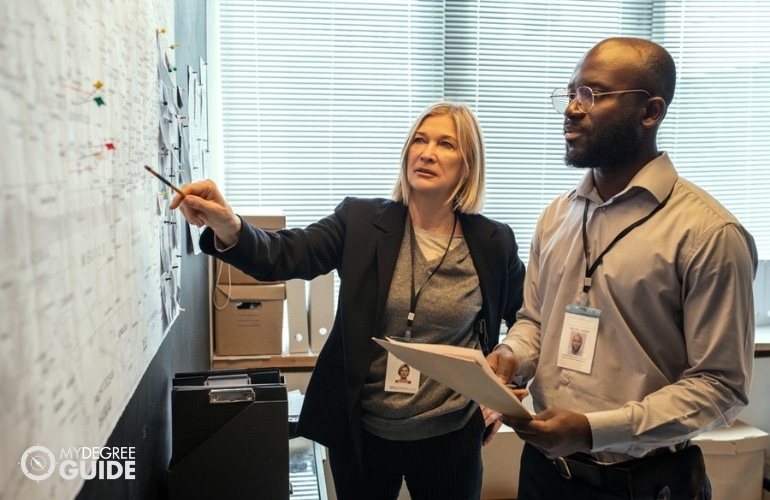
An accelerated Doctor of Criminal Justice program offers a fast-track to expertise in criminal justice leadership. With a focus on contemporary issues in the criminal justice system, the program covers key subjects like advanced criminology, law enforcement leadership, and criminal justice policy and administration.
You can become better equipped to make informed decisions and lead effectively in various criminal justice settings. Many graduates pursue high-level positions in law enforcement, policymaking, or justice administration.
Doctor of Education (EdD)

A non dissertation EdD program is designed for rapid advancement in educational leadership and innovation. This program emphasizes applying educational theories and practices to address contemporary challenges in education.
Key subjects studied include curriculum design and assessment, educational leadership and policy, and instructional technology. An EdD is common for aspiring educational leaders, administrators, and policymakers.
With in person or online doctoral programs in education without dissertation , you can become adept at implementing effective educational strategies, driving organizational change in educational settings, and contributing to policy development.
Doctor of Engineering (D.Eng)

A non-dissertation Doctor of Engineering program offers a rapid path to advanced engineering leadership. This program is designed for professionals who want to pursue executive or high-level managerial roles in engineering.
A DEng program helps prepare you to effectively lead engineering projects and innovations, integrating theoretical knowledge with hands-on application in a variety of engineering fields. Key subjects studied include advanced engineering management, sustainable engineering practices, and emerging technological innovations.
DBA in Entrepreneurship

An online DBA in Entrepreneurship program without a dissertation is a streamlined path to mastering entrepreneurial leadership. This specialized DBA is tailored for aspiring entrepreneurs or business leaders, helping you hone skills in creating, developing, and managing successful entrepreneurial ventures.
Core subjects studied include innovation and venture development, strategic entrepreneurship, and entrepreneurial finance. With an entrepreneurship DBA, you can grow your knowledge of how to launch and grow businesses, apply innovative strategies, and lead entrepreneurial initiatives.
DBA in Finance

A DBA in Finance emphasizes strategic financial management and decision-making in business. Key subjects studied include advanced corporate finance, investment strategies and analysis, and financial risk management.
A finance DBA is geared toward professionals who want to pursue roles such as CFOs or financial consultants. As a graduate, you may be ready to take charge in finance departments, handle complex investment portfolios, and tackle the intricacies of financial markets.
Doctor of Healthcare Administration (DHA)

A Doctor of Healthcare Administration focuses on managing healthcare systems effectively and ethically. This doctorate program is designed for professionals who are seeking leadership and executive roles in healthcare organizations.
A DHA combines theoretical knowledge with practical skills for real-world healthcare management. Key subjects studied include healthcare policy and regulation, organizational leadership in healthcare, and health services management. You can become better equipped to improve healthcare delivery, lead healthcare organizations, and influence policy.
Doctor of Information Technology (DIT)

A doctorate in information technology is beneficial for professionals who are eyeing senior and leadership roles in the IT sector. DIT programs emphasize the strategic application of IT in business and organizational contexts.
Key subjects studied include advanced data analytics, cybersecurity management, and IT strategic planning. You can become better equipped to tackle complex IT challenges, lead technology-driven initiatives, and drive IT strategies that align with organizational goals.
Doctor of Liberal Arts (DLA)

A Doctor of Liberal Arts offers an advanced education through diverse interdisciplinary studies. A DLA is aimed at professionals in education, policymaking, and cultural sectors.
While this program involves a broad perspective on arts and humanities, key subjects include cultural studies, ethical and political theory, and interdisciplinary research methods. Graduates can could apply their comprehensive liberal arts knowledge in a variety of fields, promoting understanding and innovation in both academic and real-world settings.
DBA in Marketing

A DBA in Marketing blends advanced marketing strategies with practical applications. This program focuses on applying contemporary marketing theories to real-world business scenarios.
Key subjects studied include consumer behavior analysis, digital marketing strategies, and brand management. This program can help you develop the skills to lead innovative marketing campaigns and strategies. A marketing DBA is especially beneficial for professionals working toward senior marketing roles.
Doctor of Ministry (DMin)

A Doctor of Ministry focuses on practical ministry skills and leadership strategy. Since it’s designed for ministry professionals, it emphasizes real-world application of theological concepts and leadership in faith-based contexts.
Key subjects covered in a DMin program include pastoral care and counseling, theological reflection and application, and ministry leadership dynamics. A DMin could help prepare you to lead congregations, manage ministry programs, and engage effectively with communities.
Doctor of Nursing Practice (DNP)

A DNP program is designed for nurses seeking advanced nursing roles and leadership roles in healthcare settings. This program focuses on applying advanced nursing skills to improve patient outcomes and healthcare delivery.
Key subjects studied include advanced clinical practice, healthcare policy and advocacy, and nursing leadership and management. According to the Bureau of Labor Statistics , 45% job growth is projected for nurse practitioners over the next ten years, making it one of the fastest growing occupations.
Doctor of Occupational Therapy (OTD)

An online Doctor of Occupational Therapy program is tailored for occupational therapists aiming for higher-level clinical or administrative roles. This type of program emphasizes enhancing therapeutic practices and leading in healthcare settings.
Core subjects include advanced clinical practice, occupational therapy leadership, and evidence-based practice in occupational therapy. Graduates may apply their skills in diverse healthcare environments, implementing innovative therapy techniques, managing therapy programs, and contributing to the development of OT practices.
Doctor of Physical Therapy (DPT)

A Doctor of Physical Therapy is the minimum educational requirement for aspiring licensed physical therapists. This program focuses on applying advanced therapeutic techniques and leading in diverse healthcare environments.
Key subjects studied include advanced clinical biomechanics, physical therapy in special populations, and health care policy and administration in PT. A DPT can help equip you to improve patient rehabilitation, bring new approaches to physical therapy, and effectively manage physical therapy departments or practices.
Doctor of Public Administration (DPA)

A doctorate in public administration is designed for professionals who aspire to lead in government or non-profit organizations. This program centers on applying advanced concepts to public administration challenges.
Key subjects studied include public policy analysis, organizational leadership in government, and public financial management. A DPA program can help prepare you to shape policies, lead public organizations, and manage resources effectively, making a meaningful impact in public service.
Doctor of Public Health (DrPH)

A Doctor of Public Health is designed for professionals who want to pursue senior or leadership roles in the public health sector. This program emphasizes the practical application of public health theories in addressing global and community health challenges.
Key subjects studied include epidemiology and biostatistics, health policy and management, and community health promotion. DrPH graduates may be equipped to lead in public health organizations, design effective health programs, and influence health policy.
Psychology (PsyD or PhD)

Doctoral psychology programs help prepare you for careers in clinical psychology, counseling, or research.
A Doctor of Psychology (PsyD) focuses on practical psychological skills. A Doctor of Philosophy (PhD) in Psychology tends to emphasize research and theory in the field. Key subjects include clinical practice and assessment, counseling techniques, and behavioral therapy.
According to the American Psychological Association (APA) , psychology professionals work in various settings, like schools, healthcare facilities, and private practice.
Doctor of Social Work (DSW)

A Doctor of Social Work is geared toward social work professionals who want to pursue leadership roles in agencies or nonprofits. This program can help you hone skills in both clinical practice and social work administration.
Key subjects studied include advanced clinical practice, social policy analysis, and leadership in social work. Advanced social work roles include clinical directors, policy advisors, and heads of social service organizations.
Advantages and Challenges of No Dissertation Doctorates
Exploring the shortest doctoral programs without dissertation is beneficial if you’re looking to fast-track your career with practical skills. It’s helpful, though, to first weigh the pros and cons to see if it’s the right fit for you.
At the end of the day, the easiest doctorate degrees or easiest PhD without dissertation programs are beneficial if they help you work toward your personal, professional goals.

When choosing an online 18 month doctorate program, here are some key factors to consider:
- Accreditation . It’s beneficial to make sure the school is accredited. This stamp of approval means it meets certain quality standards, which is crucial for your degree’s value.
- Program flexibility . You can look for programs that fit your schedule, especially if you’re balancing work or personal commitments.
- Faculty expertise . You can research the faculty’s background. You might prefer experienced instructors who are experts in their fields.
- Curriculum relevance . You can check whether the coursework aligns with your career goals and interests.
- Technology and resources . Some schools offer robust online resources and tech support—essential for a smooth online learning experience.
- Cost and financial aid . You can evaluate the total cost as well as what financial aid or scholarships are available.
- Alumni network and career services . A strong network and career support can be invaluable for post-graduation opportunities.
The right program for you is the one that not only meets your preferred criteria but also fits your personal and professional aspirations.
Admissions Requirements

Each program has its unique admissions requirements, but here are some common criteria for doctoral programs:
- Advanced degree . Many doctoral programs require a master’s in a related field.
- Professional experience . Relevant work experience showcases your practical knowledge in the field.
- Letters of recommendation . These can come from academic or professional references who can vouch for your qualifications.
- Personal statement . You can explain your motivations and goals for pursuing a doctorate.
- Standardized test scores (if required) . Some grad programs ask for GRE or GMAT scores.
Tailoring your application to each school’s criteria will strengthen your chances of success.
Financial Aid and Scholarships

Financial aid options can help make paying for a doctorate more manageable. You can start by filling out the Free Application for Federal Student Aid (FAFSA) . It will determine your eligibility for grants, loans, and other federal aid. You can also check out what financial aid opportunities your state offers.
If you’re working, you could see if your employer has tuition assistance programs. Many employers are willing to invest in their employees’ education. In addition, you can keep an eye out for scholarships offered by universities, private organizations, or community groups. They can help cover the cost of higher education.
Find quick answers to the most frequently asked questions below.
Can You Get a Doctorate Degree Without a Dissertation?

Yes, you can get a doctorate degree without a dissertation, and it’s becoming a popular choice for many. These programs focus on practical knowledge and skills rather than traditional research.
Instead of a dissertation, you might work on a capstone project, an applied research project, or a professional portfolio that’s more aligned with your career goals. This approach is especially appealing if you’re a working professional looking to advance your career without the time-intensive commitment of a traditional dissertation.
How Is a Doctorate Without Dissertation Different from a Traditional PhD?
Here are some of the differences between a doctorate without a dissertation and a traditional PhD.
Both the fastest PhD programs online and accelerated doctorate programs without dissertations have their merits. You can choose the path that best fits your career aspirations.
Program Cost

The cost of an 18-month doctorate program can vary. But according to the National Center for Education Statistics (NCES) , the average cost of graduate tuition and required fees for an academic year is $12,596 at public institutions and $29,931 at private nonprofit institutions.
Keep in mind, these are averages. The actual cost could be different based on the specific program and school. When considering a program, it’s helpful to look at the detailed tuition fees and factor in other expenses like books, program fees, and living costs. This helps you plan financially for your educational journey.
Are 18-Month, Non-Dissertation Doctorates Credible and Accredited?
There are 18-month, non-dissertation doctorates that are both credible and accredited. Accreditation is key here, especially regional accreditation, which is regarded as the gold standard in higher education.
When a program is regionally accredited, it means it has met rigorous standards set by a recognized accrediting agency. This stamp of approval ensures the quality and credibility of your degree, making sure it’s recognized by employers and other educational institutions.
So, when you’re scouting for programs, it’s always strategic to check their accreditation status. You can find more information and a list of accredited institutions on the US Department of Education’s website.
Can You Get a Doctorate Without a Masters Degree?

Yes, you can get a doctorate without a masters degree. Some PhD programs welcome candidates straight from their bachelor’s program, especially if you have a strong academic record and relevant research or work experience.
These programs typically integrate the coursework of a master’s degree into the PhD curriculum, so you’re not missing out on any vital knowledge. Every program has its unique admissions criteria, so it’s important to check the specific requirements of the schools you’re eyeing. That way, you can find a path that fits with your educational background and career goals.
What Kind of Career Opportunities Can I Pursue with an Accelerated Doctoral Degree?
The jobs available to you with a doctoral degree depend on a number of factors, including your degree specialization, work experience, and geographic location.
According to the Bureau of Labor Statistics, here are a few roles that typically require doctoral degrees.
Your career opportunities will likely depend on your field of interest, skill sets, and experience.
Getting Your Degree Online

Diving into an 18-month doctorate program without a dissertation component can be a game-changer for your career.
It’s a fast track to advancing your expertise with a practical focus that fits into your busy life. The key is to choose an accredited doctoral program that aligns with your goals. So, why wait? You can start exploring your options today!
The sooner you find the accredited school and program that’s right for you, the sooner you can take that next step in your educational and professional journey.


IMAGES
VIDEO
COMMENTS
In 2020, the average age of a graduate from a PhD program in the United States was 33. However, 6% of the graduates were over 45. When people ask what the average age of a PhD student is, many times they're really asking, "Am I too old to get a PhD?". The answer is almost always no.
There are no age restrictions on a doctoral degree. In fact, the youngest Ph.D. graduate on record currently is Kim Ung-Yong, a South Korean professor who earned his Ph.D. in civil engineering at the young age of 15! On the other extreme is Charles Betty, the United Kingdom graduate who, earning his Ph.D. at 95 years of age, is currently the ...
In this same year, over 50% of PhD students in subjects related to physical sciences, earth sciences, life sciences, mathematics, computer sciences and engineering were below the age of 31, whilst less than 10% of these STEM graduates were older than 41. Conversely, 61% of PhDs in humanities and arts and 52% in other non-engineering and science ...
It's not insanely young. Average age to finish undergrad/start grad school in the US is 22, average of 4-6 years for a PhD and you graduate around 26-28. A few years older isn't uncommon- some people take longer in undergrad, some take gap years, work in industry or get a masters, and some take longer to the PhD.
This is the list of the fields of doctoral studies in the United States used for the annual Survey of Earned Doctorates, conducted by NORC at the University of Chicago for the National Science Foundation and other federal agencies, as used for the 2015 survey.. These are fields of research-oriented doctoral studies, leading mostly to Ph.D.s - in the academic year 2014-15, 98% of the 55,006 ...
Kee says funding for a humanities Ph.D. program typically only lasts five years, even though it is uncommon for someone to obtain a Ph.D. degree in a humanities field within that time frame ...
PhD stands for Doctor of Philosophy. This is one of the highest level academic degrees that can be awarded. PhD is an abbreviation of the Latin term (Ph)ilosophiae (D)octor. Traditionally the term 'philosophy' does not refer to the subject but its original Greek meaning which roughly translates to 'lover of wisdom'.
A Doctor of Philosophy, often known as a PhD, is a terminal degree—or the highest possible academic degree you can earn in a subject. While PhD programs (or doctorate programs) are often structured to take between four and five years, some graduate students may take longer as they balance the responsibilities of coursework, original research, and other degree requirements with raising ...
A PhD program typically takes four to seven years, but a variety of factors can impact that timeline. A PhD, or doctorate degree, is the highest degree you can earn in certain disciplines, such as psychology, engineering, education, and mathematics. As a result, it often takes longer to earn than it does for a bachelor's or master's degree.
Online universities offer doctoral programs in ministry to train pastors, religious counselors, and other faith leaders. Doctoral degree-holders can also become ministry professors. Distance learners can also pursue doctorates in theology online. Learners examine theological scholarship and study religious history.
A doctor of philosophy, or Ph.D., is a specific type of doctorate focused primarily on academic research. Ph.D. students are expected to conduct original research and add to their field's discourse. Most Ph.D. programs also require you to write and defend a dissertation. All Ph.D.s are doctorates, but not all doctorates are Ph.D.s.
Even if you disagree with your supervisors or advisors, do your best to always remain respectful in those disagreements. Remember: 90 percent of your happiness during a PhD will be based on your relationships with your committee, so do your best to be a great student. You will feel really uncomfortable.
On average, students need to complete 54 credits to earn the degree. You may earn these credits in 18 months or up to 3 years. The courses are each 8 weeks long. There is no dissertation requirement for this course. Many students will not complete the program in 18 months, though. Those with transfer credits may.
A Ph.D., or doctor of philosophy, is the highest level of academic degree that you can attain. Consisting primarily of research, a Ph.D. prepares you for a career in academia or research in the field you study. Students who choose to pursue a Ph.D. online will find it can be completed in less time. Online students also get the added benefit of ...
1-Year Doctoral Programs. There are only a few accelerated doctoral programs available, but they do exist. One such program is offered by Breyer State Theology University, which provides a one-year doctor of psychology program tailored to those interested in becoming grief counselors. As with other accelerated programs, applicants are required ...
Yes, it's possible to get a PhD without first having a Masters degree. The conventional route for someone who earns a PhD is to pursue a Bachelor's degree, followed by a Masters degree and then a PhD. However, several students opt to bypass a Master's degree by enrolling onto a doctoral programme as soon as they complete their ...
1. "it is the minimum entry criteria for a career in research" Then multiple PhD should be required to perform interdisciplinary research, since the person who has a PhD in a field, doesn't satisfy the minimum entry criteria for research in different topic. - M.S. May 23, 2018 at 10:56. 10.
You can complete a DPA program in 2-3 years, making it the most accelerated doctoral program in this discipline. 19. Fast Online Public Health Doctorate Programs. You have two types of online doctorates in public health available to you: a Ph.D. research degree or a doctor of public health (DrPH) practitioner degree. A DrPH program focuses on ...
Earn a Master's degree, a Bachelor's degree, or a Postgraduate credential from a top-ranked university at a breakthrough price. Study on your own schedule with 100% online degree or postgraduate programs. Learn from project-based courses and get direct feedback from your professors. When you graduate, you'll receive the same university degree as students who attend class on campus.
A PhD gives you the research skills, and those can transfer to other areas. If you have all those skills, you can get a lot of the information on your own and become an expert in another field. You know how to research and dive in and find people who can help you find other information, so if you need to know about a subject, you have the ...
An 18-month non-dissertation doctorate in computer science program is a rapid route to advanced technological expertise. This program is aimed at professionals who are eyeing leadership roles in tech industries. It emphasizes cutting-edge computing technologies and problem-solving in real-world contexts.